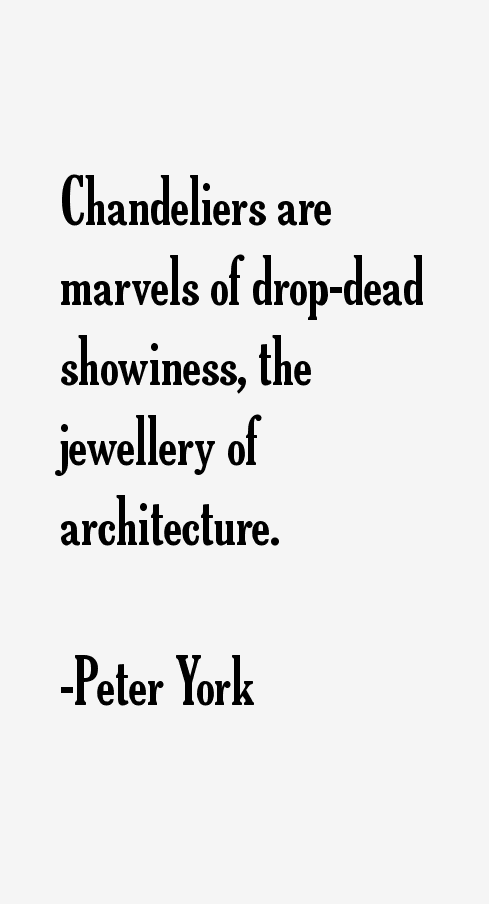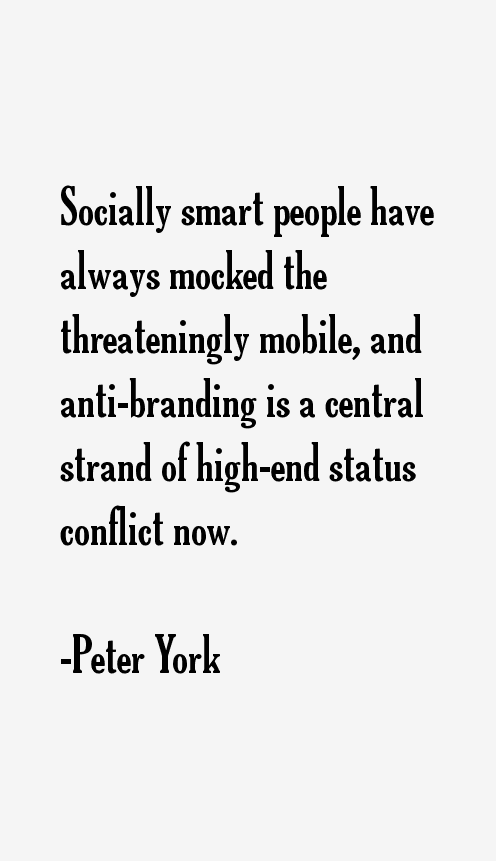Peter York Quotes & Sayings
61 most famous Peter York quotes and sayings (journalist). These are the first 10 quotes we have.
“In the 1940s, cigarettes would be shown in classy situations, endorsed by celebrities - real A-list Hollywood stars in America - the ads would make claims about tobacco quality or manufacturing science and, bizarrely, some brands had what almost amounted to health claims.”
“I often find myself worrying about celebrities. It's an entirely caring thing; it's not like the people who commission those photographs with cruel arrows to go on the covers of the celebrity magazines. The photographs show botched plastic surgery, raging eczema, weight gain and horrible clothes for maximum schadenfreude.”
“Prince William looks good in uniform and Man-at-Hackett black and white tie (he has grown up wearing it constantly); less certain in his suits, which sometimes look borderline archaic; and variable in casual. But completely comfortable in the Sloane uniform of non-designer jeans and chocolate-brown suede loafers. He'll look fine in Boden.”
“Like lots of baby boomers, I was brought up on archaic anthropomorphism. Upstanding Christian dogs. Rabbits with family values. Because the ancient texts and pictures were sacred - Potter, Milne and the rest. Even concerned parents who knew Freud and Jung never saw the contradictions in feeding us on them.”
“Tabloid discussion of bad children always blames baby-boomer liberals, careerist mothers and fashion-crazed Nathan Barley types who think it's all enormously funny. But the centre-leftish psycho-thinker Oliver James says it's all down to the Thatcher-and-after culture of turbo-capitalism, making people acquisitive and unsatisfied.”
“Have you got a Beemer, an Audi, a Saab or a Volvo that replaced a Ford, Vauxhall, Rover or Nissan? Many Brits have. Your first Beemer. A particularly nice smell of leather. Something rather plain but satisfactory about the interior. And that lovely enamel wotsit in the middle of the steering wheel. A moment of quiet 'because I'm worth it' pride.”

“Men turn to formal wear when they want a new job or when they think their current one is in danger. They try to present themselves as powerful and successful.”
“Pop managers are fixed in the dramatic stock character repertoire too, ever since the first British pop film musical, Wolf Mankowitz's 'Expresso Bongo' of 1959, with Cliff Richard as Bongo Herbert and Laurence Harvey as his manager. The key components were cast as X parts gay, X parts Jewish and triple X opportunistic.”

“Chandeliers are marvels of drop-dead showiness, the jewellery of architecture.”

“Socially smart people have always mocked the threateningly mobile, and anti-branding is a central strand of high-end status conflict now.”
Peter York Quotes Rating
No Ratings Yet
Leave A Comment
























